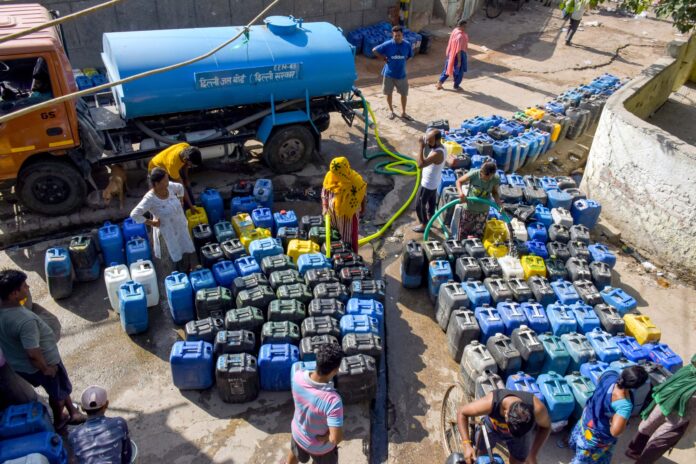Anushka Kogta and Mohsin Javed, TwoCircles.net
New Delhi: Nestled within a 1 km radius of the upscale enclave of Vasant Vihar, Kusumpur Pahari grapples with persistent water supply challenges. For four decades, its residents have endured the absence of running water from their taps. According to a recent World Bank report, 163 million Indians lack access to safe drinking water, with 21% of communicable diseases attributed to unsafe water.
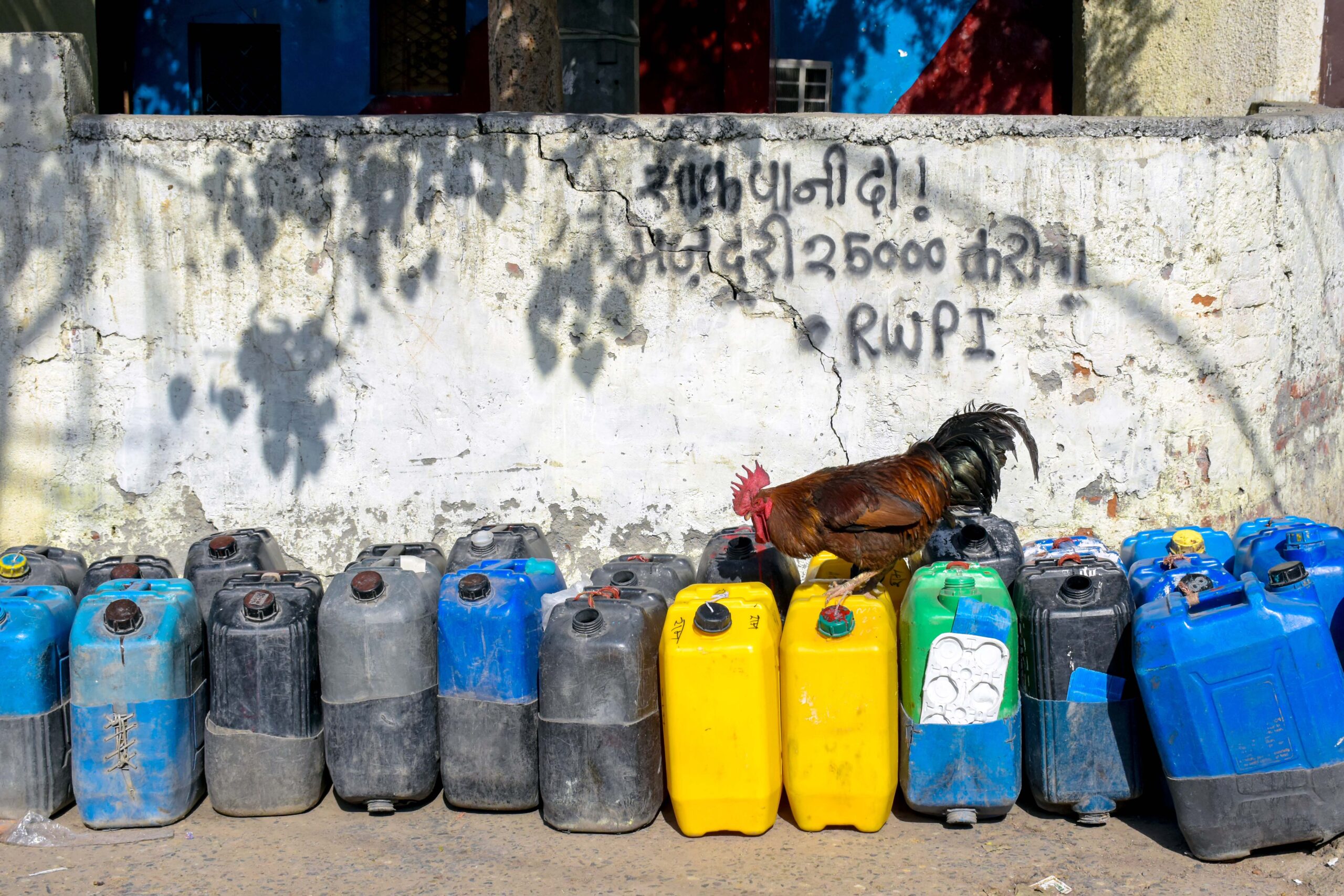
As temperatures soar in the national capital, the water scarcity exacerbates. Several localities in Delhi confront acute water shortages, and Kusumpur Pahari, situated in the South Delhi constituency, is no exception. Here, contending with water scarcity has become a quotidian struggle.
Munni Devi, a septuagenarian resident of the locality, candidly shared her ordeal: “We receive a water tanker in our block once every 15 days. How can one survive on such limited water supply for two weeks? There were instances when the tanker arrived only once a month. Though the situation has marginally improved, I still have to trek to fetch water from the tanker regularly.”
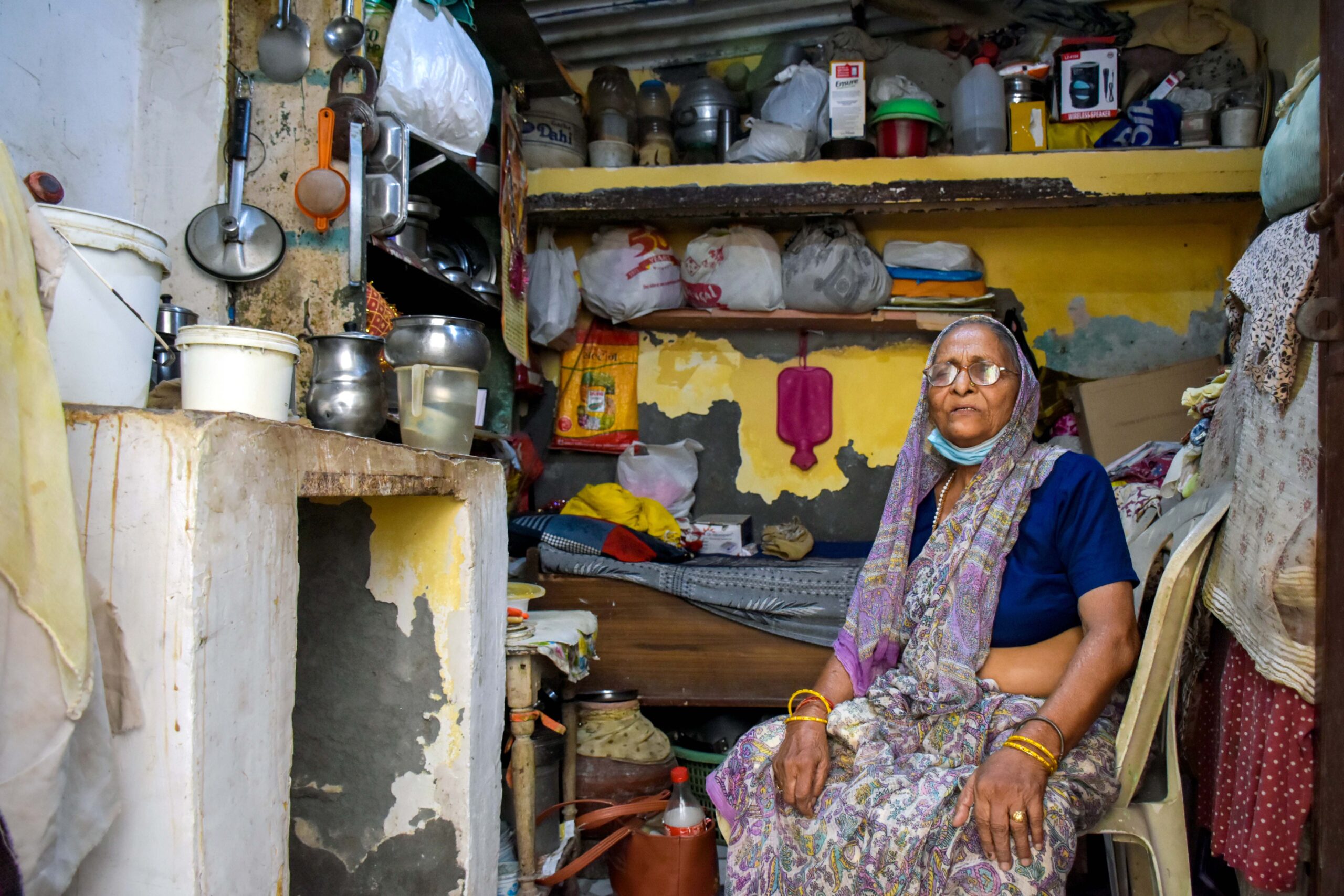
Lacking a pipeline infrastructure, the inhabitants of Kusumpur Pahari depend on two primary water sources: borewells and tankers. Tanker water is designated for drinking purposes, while borewell water is earmarked for household tasks such as dishwashing, laundry and bathing.
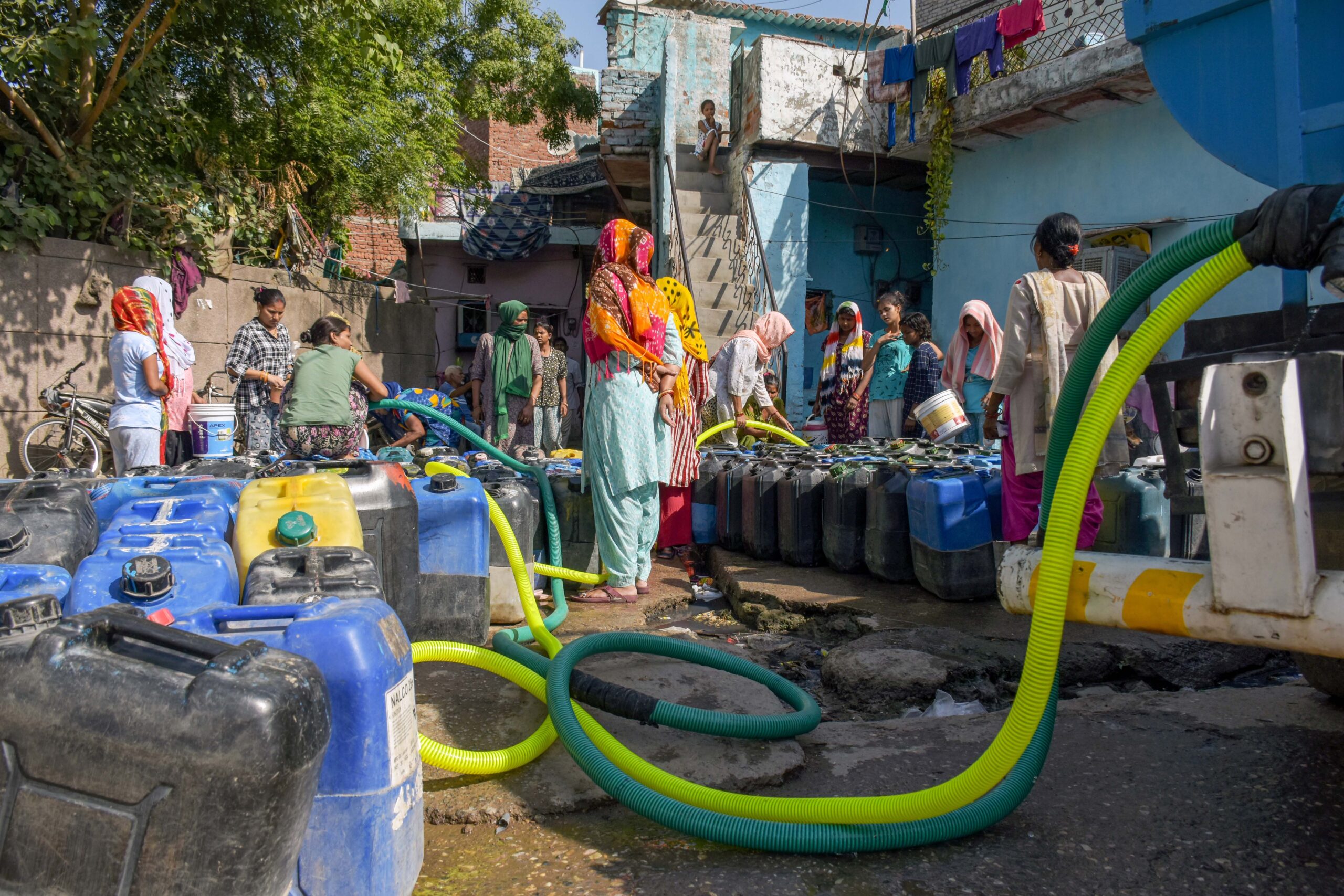
Regrettably, residents frequently lament the subpar quality of borewell water, noting its often unclean and contaminated state.
Encircled by a cluster of blue cans that are used to collect water, Dolly, who is known by her first name only, was washing clothes outside her residence.
“When borewell breakdowns, we are compelled to cover repair costs out of pocket. Unfortunately, the borewell water quality fluctuates; sometimes it is tainted, while other times, it is potable. We reserve three cans specifically for drinking, while the rest is allocated for laundry and dishwashing,” explained the woman, who originally hails from Uttarakhand and has been residing here after her marriage.
With only two cans of drinking water left until the next tanker delivery, she awaits its arrival with anticipation.
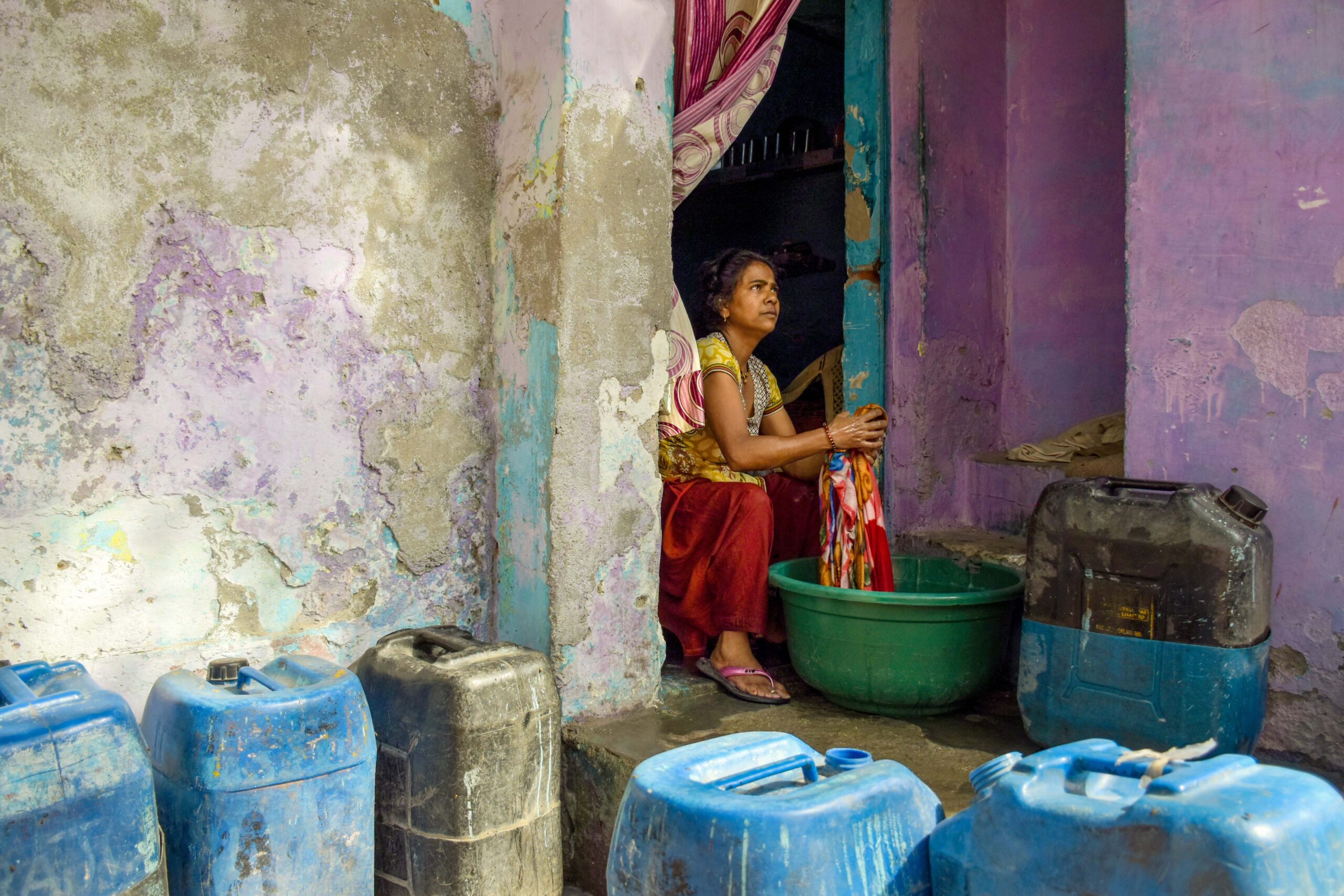
As per a United Nations report, the global urban population grappling with water challenges is estimated to soar to 2.4 billion by 2050, with India poised to bear the brunt of this crisis.
For 14-year-old Shaurya Mishra, summer break entails a departure from typical childhood activities. Instead of frolicking with friends, he embarks on a bicycle journey laden with cans to fetch water from the borewell.
His father’s absence necessitates this task, as his mother cannot manage the cumbersome containers. “Each can holds 40 liters of water. I transport eight cans on my bicycle to fill them. However, on the return trip, carrying all of them home at once is unfeasible, so I ferry two cans at a time,” Mishra elucidated.
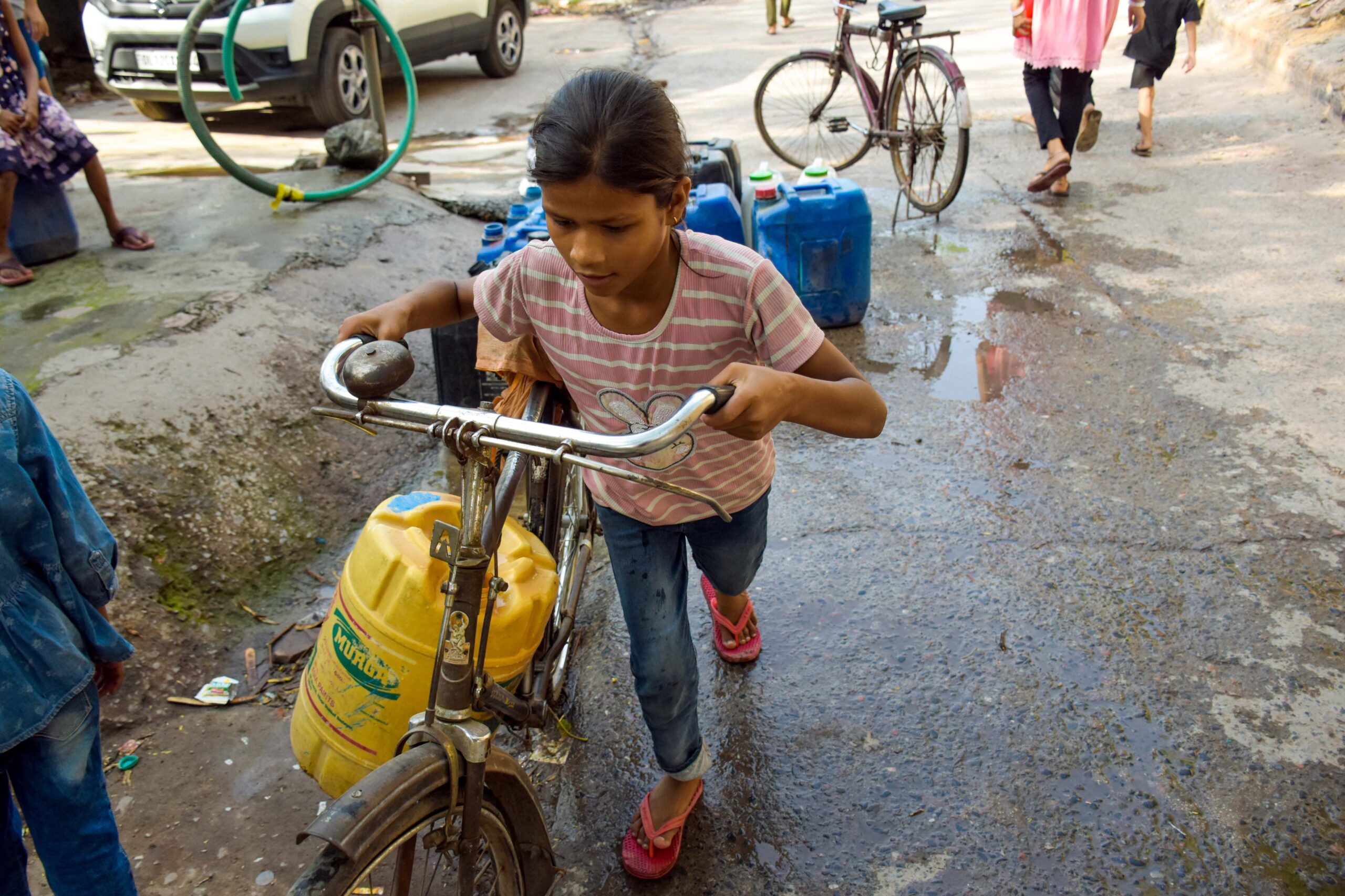
He lamented the escalating temperatures, which often deplete their water reserves, compelling them to resort to the borewell as a contingency.
“Unfortunately,” he disclosed, “the water we procure from the borewell is laden with dirt.”
At 75, Saumbati Devi finds herself living in solitude after parting ways with her family. “I used to haul water cans until I turned 50, but now it is beyond my physical capability as it strains my knees,” she expressed.
Devi relies on her neighbors for water and frequently compensates children to fetch it on her behalf, as she is unable to do so herself. “I have to manage my water needs independently,” she affirmed.
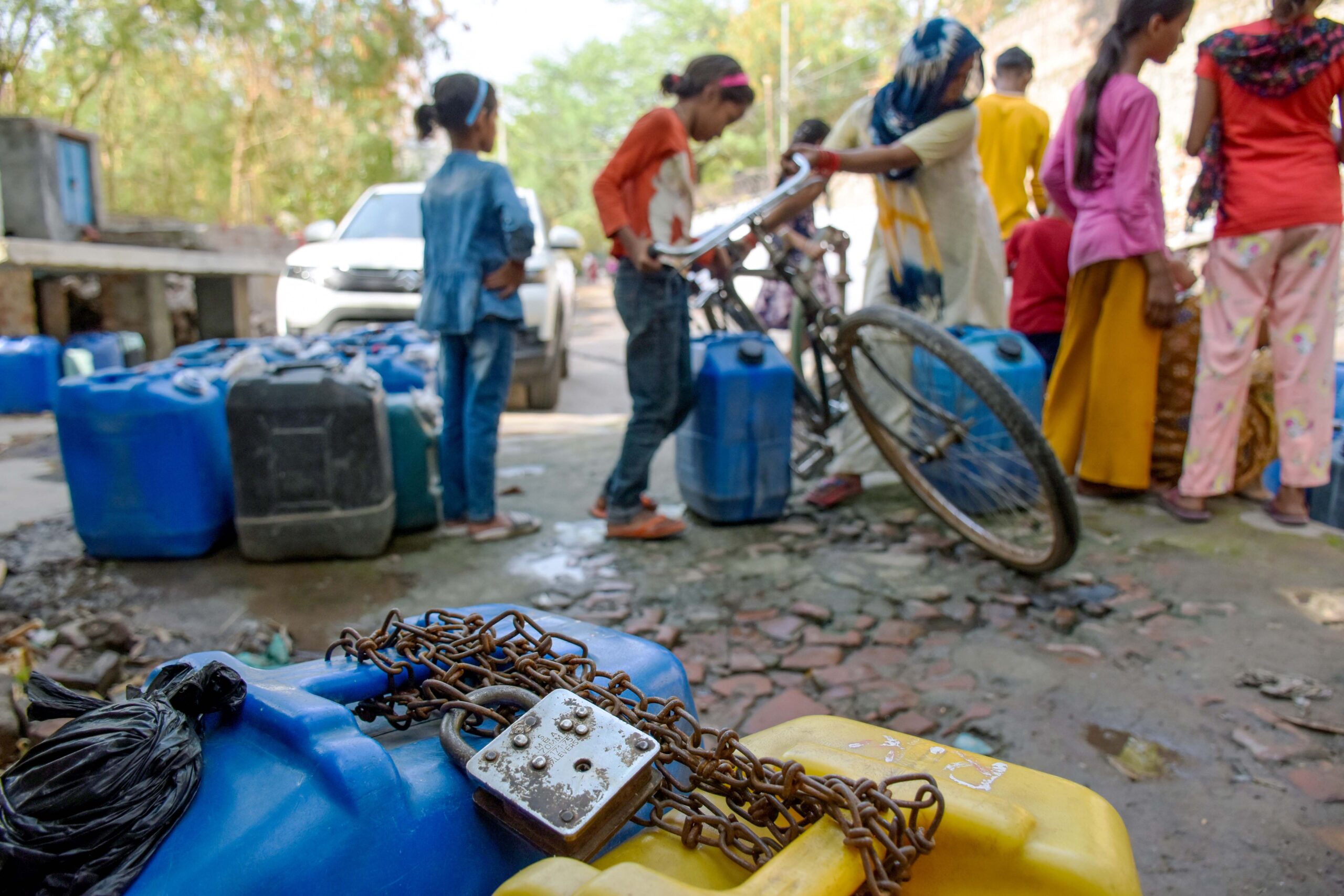
Kusumpur Pahari is divided into blocks from A to E, with tankers arriving in different blocks on different days.
“The biggest problem arises when you live alone. Who will fill water for you if you are at work or live with elderly parents? The tanker comes once every 10 days in this block. There should be someone to help carry the cans; otherwise, you will be left with no water,” said Rajesh Kumar, 42, who has to leave early for work in the morning.
Residents resort to locking their water-filled cans, often designating individuals to stand guard over them. Such precautions become imperative due to the logistical constraint of only being able to transport two cans to their homes at a time.
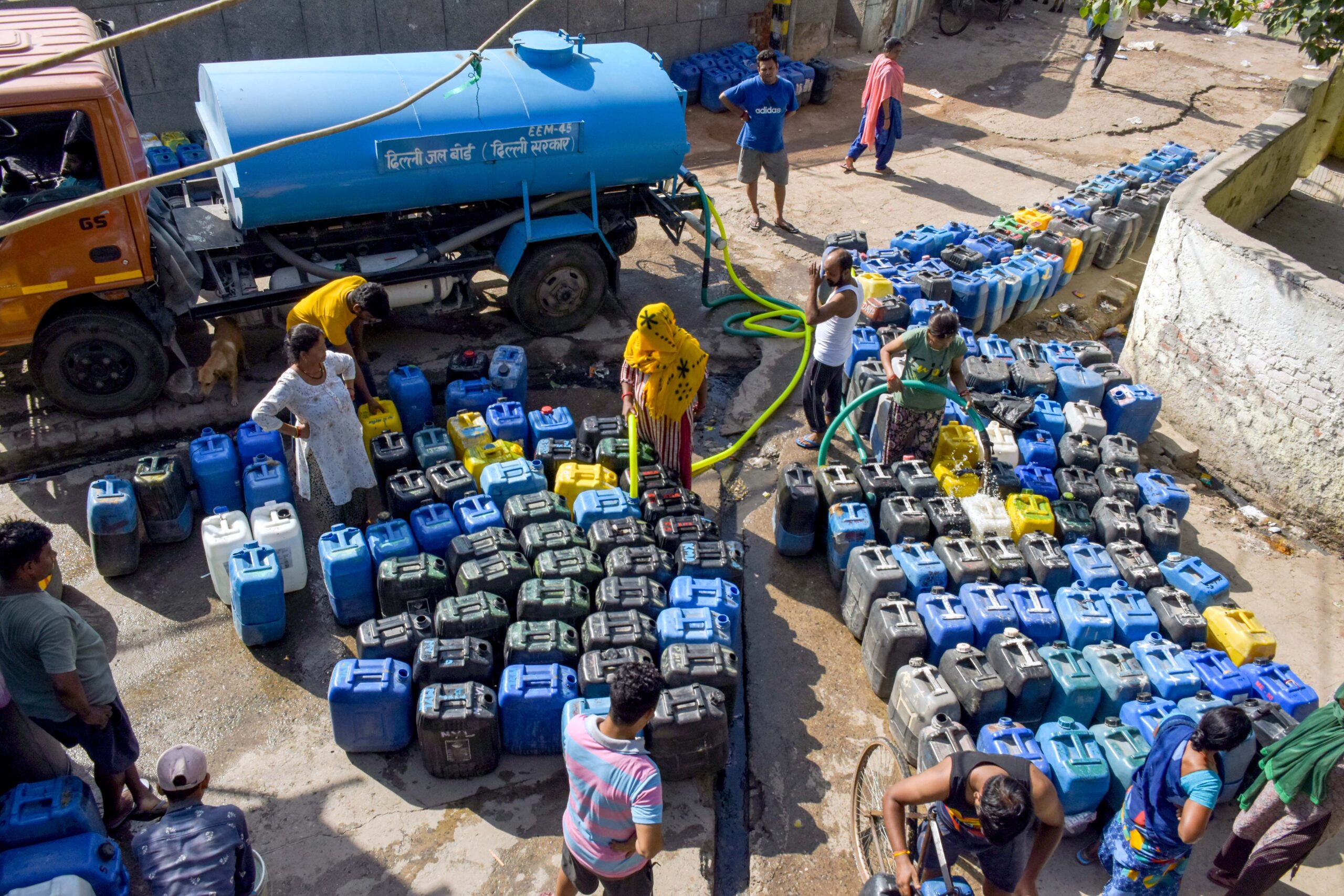
In addition to those who have been living there for a long time, tenants too bear the brunt of the water scarcity, facing minimal to no access to tanker water. These tenants are excluded from the tanker service due to their non-permanent residency status.
Nakul, known solely by his first name, disclosed the challenges faced by the tenants, emphasizing their lack of a designated water-filling schedule.
“Even homeowners here face water scarcity and a sense of helplessness. For the tenants, obtaining water becomes nearly insurmountable,” lamented the 18-year-old.
He elaborated the tanker arrives promptly at 7 am, and the entire lane becomes inundated with cans. “Every day, we witness a procession of around 500 cans queued up, with each family filling 35-40 cans,” he said.
Residents revealed a burgeoning job opportunity in the vicinity, where individuals offer to transport hefty water cans to households for a fee.
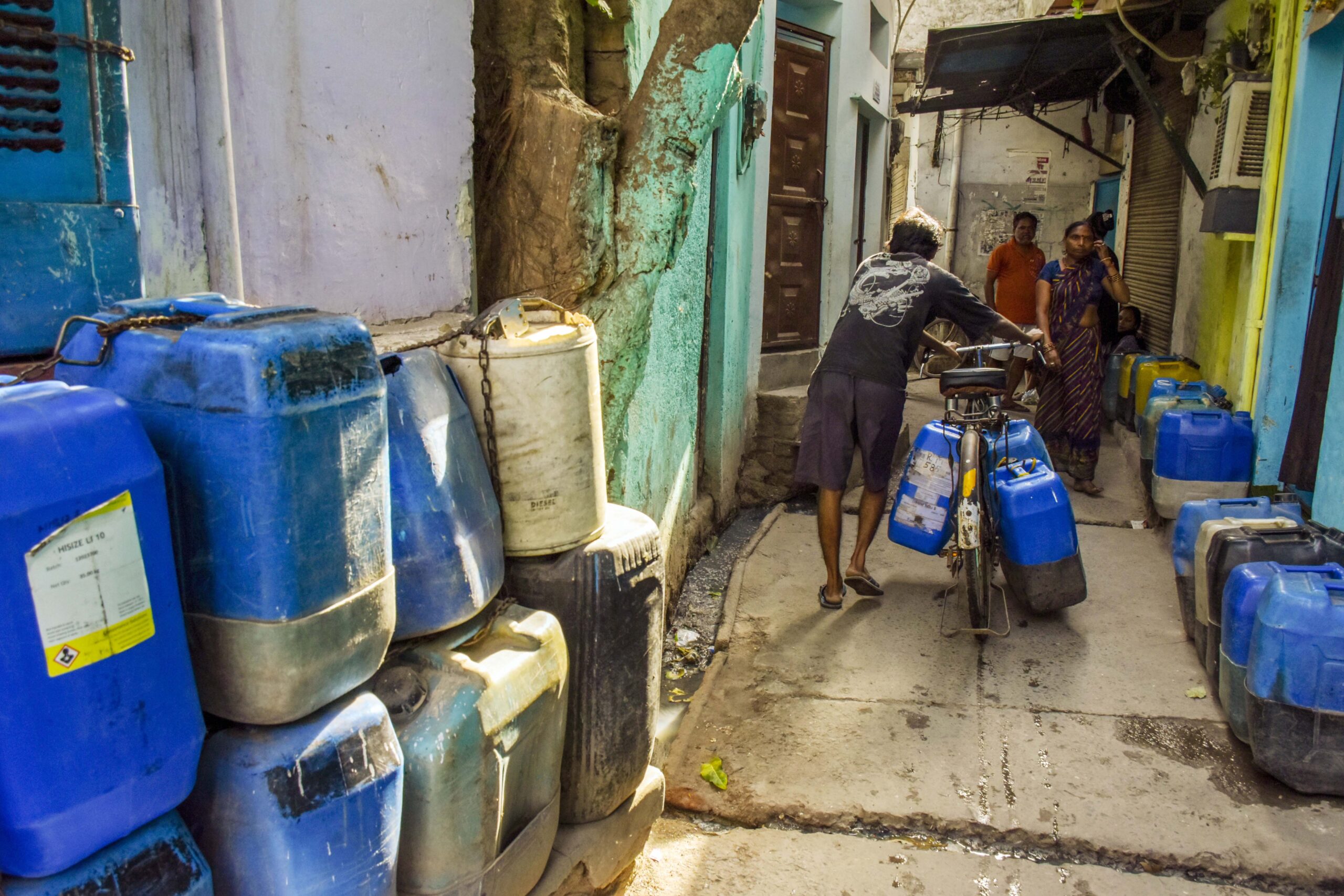
“I pay Rs 5 per can, and I fill up to 20 cans. Every time, I have to shell out Rs 100 to someone to carry them,” disclosed Munni Devi.
She also acknowledged the necessity of paying the tanker driver to fill her cans with water. “We have to pay the tanker driver for the water to reach here,” she added.
The individuals engaged in this service traverse from one residence to another on the day preceding the tanker’s arrival. They typically charge Rs 5 per can and can earn up to Rs 200 daily.
However, the residents allege that many of these workers squander their earnings on alcohol.
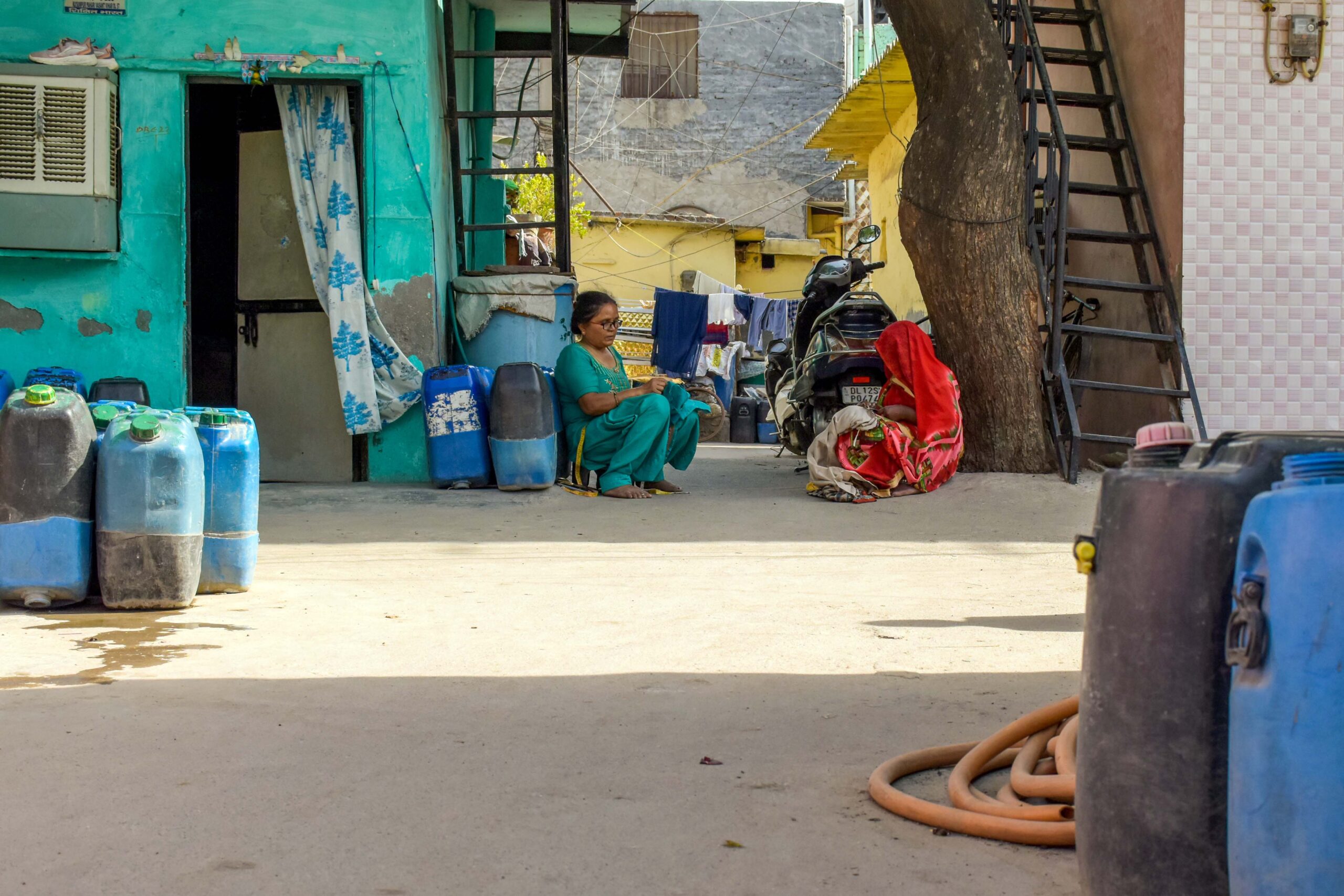
Rupa, identified by her first name, was spotted basking in the sunlight outside her residence. She expressed satisfaction with the current water quality, noting an improvement from the previous year.
“Earlier, we had to fetch water from a distant location down the road. Now, thanks to the tanker, we can access water conveniently near the dispensary, not too far from here. Although the tanker arrives only once a week, on Mondays,” she remarked.
Residents here are constantly advocating for a pipeline connection. “Madam, please consider installing a pipeline here; it would make a world of difference to us. All we are asking for is our fundamental right – access to clean water,” Nakul pleaded.
The ongoing struggle to obtain water has become ingrained in their daily lives, and their sole aspiration now is for a pipeline connection to be established in their homes.
(Anuskha Kogta is a freelance journalist and student of AJK Mass Communication Research Centre, Jamia Millia Islamia. Mohsin Javed is a freelance photojournalist)


